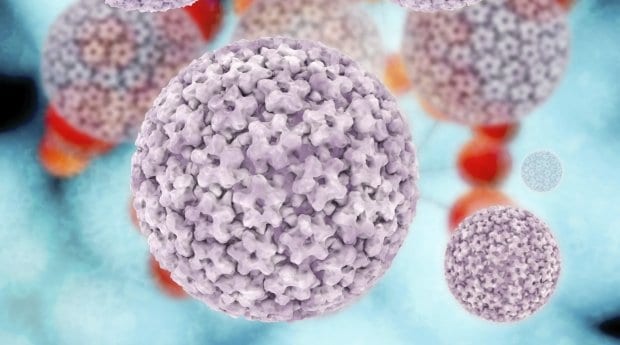Gentlemen — have you gotten your HPV vaccine?
It’s a question not many men — gay, bisexual or straight — might think to ask themselves. But with over 60 percent of men who have sex men carrying HPV, experts say that vaccination should concern everyone.
There are more human papillomavirus (HPV) cancers total in men than there are cervical cancers in women, according to Dr Irving Salit, a professor of medicine at the University of Toronto who studies HPV transmission among men.
“It is something that is underappreciated,” he says. Those cancers include penile, throat and anal — women can get both throat and anal, but it appears oral cancers among men have increased. Some studies estimate that HPV will cause more oral cancers than cervical cancers in the United States by 2020.
Gay men are also more likely to be carrying HPV — about 60 percent of men who have sex with other men have HPV, according to information provided by the Health Initiative for Men (HIM), based in British Columbia. Among men who are HIV-positive, that number jumps to 80 percent. The rates of anal cancer also rise for HIV-positive men.
While public education campaigns have effectively gotten the word out about the importance of using condoms and being regularly tested for HIV and other STIs, like gonorrhea or chlamydia, there haven’t been as many other similarly concerted efforts around HPV prevention for men.
“It’s an issue that doesn’t get enough attention among men in general,” says Michael Kwag, the program manager for knowledge translation at HIM. “[Especially for] gay men in particular, where there are quite high prevalence rates.”
#GetGarded, a new campaign spearheaded by HIM, is an effort to ensure that more gay and bisexual men get the HPV vaccine.
Though the vaccine is most effective if administered before becoming sexually active, you may still get a benefit from it afterward. There are many strains of HPV, and only some that are related to cancer. While you still may be infected, getting vaccinated could potentially protect against other strains.
Gardasil, for example, protects against a number of the HPV strains that cause cancer.
Because it’s not publicly funded in Canada, men will still have to pay for the vaccine. However, some health insurance plans provide coverage for Gardasil.
Men can be tested for HPV, similarly to how women are tested, with a pap test administered anally. But unlike for women, there is no official recommendation for HPV tests for men. However, some studies suggest that men who are having sex with men should be regularly tested.
Dr Salit says that it’s also important for people to be aware of HPV-related changes that may occur. Catching the changes earlier leads to more successful treatments down the road if they turn out to be cancer related.


 Why you can trust Xtra
Why you can trust Xtra


